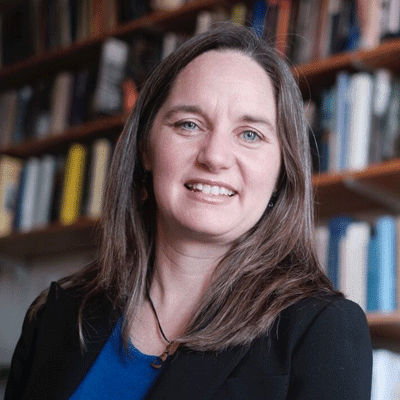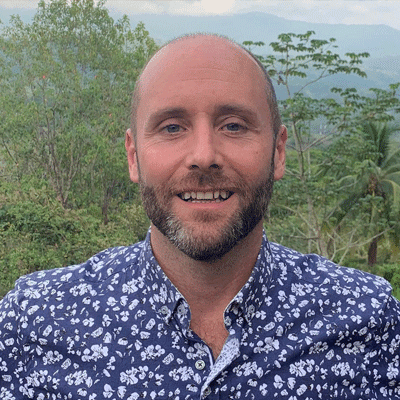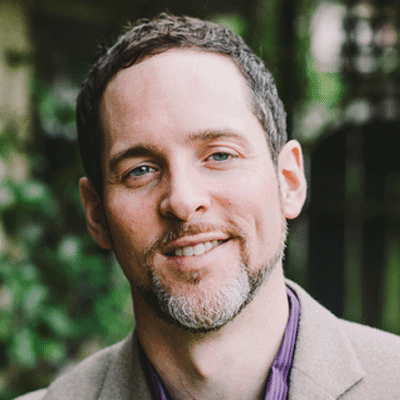Introduction to Psychedelic-assisted Therapy (PaT) Course
Step into the forefront of mental health innovation with our Introduction to Psychedelic-Assisted Therapy (PaT) Course—a vital starting point for licensed and non-licensed healthcare providers. As psychedelics gain increased recognition in mental health care, this course is your gateway to understanding and integrating these groundbreaking treatments.



Course Info
at a Glance
Course Dates
February 6, 2024
May 7, 2024
September 3, 2024
Fees
$1,604 CAD
Live Q&A Sessions
Tuesdays from 6:00 pm to 7:30 pm MST
Number of Hours
21 hours
Credential(s) Earned
CE Credits
Prerequisites
This course is a prerequisite for our Advanced Psychedelic-Assisted (PaT) Certification Program.
Interactive learning and community support for psychedelic therapy
This course empowers participants to confidently engage in discussions about psychedelic-assisted therapy, enabling them to answer client/patient inquiries and hold informative conversations among peers. As legislative support grows for psychedelic medicine, this course acts as a crucial bridge, equipping individuals with a foundational understanding of key psychedelics—psilocybin, MDMA, LSD, iboga, and ketamine.
Dive into 14 immersive video lessons, unlocking the depths of psychedelic therapy on-demand. Learn at your pace and discover key insights to enhance your practice.
Engage in real-time discussions with experts during our 4 live Q&A sessions. Get your burning questions answered and gain invaluable insights directly from industry leaders. Post-session recordings included.
Access over 30 downloadable resources, including guides and research papers, providing you with essential tools and knowledge for successful psychedelic therapy.
Join our thriving online community—a hub for collaboration, sharing experiences, and networking with like-minded individuals passionate about the transformative power of psychedelic therapy.
What you'll learn
- Understand the fundamentals of psychedelic-assisted therapy and its impact on traditional therapies
- Explore the 80-year history of psychedelics, their research, and outcomes
- Understand the applications of commonly used psychedelics in mental health treatment
- Identify the risks and benefits of psychedelic-assisted therapy
- Recognize the significance of preparation and integration in this therapy
- Articulate the essential code of ethics for safe and effective practice
- Embrace self-care practices vital for sustaining a psychedelic therapy practice
View our course curriculum
What is psychedelic-assisted therapy? What is the psychedelic experience? This first overview session will cover the basic elements regarding why psychedelic-assisted therapy is a unique therapeutic process that lies outside of any traditional therapy, but why it is still important to have knowledgeable and loving therapists drive the renaissance in which we find psychedelics.
Did you know the word “psychedelic” was coined right here in Canada? Join Dr. Erika Dyck as she discusses how the history of psychedelics is shaping this new psychedelic renaissance, and how we can avoid some of the pitfalls that occurred in the first wave of psychedelic therapy in the 60s and 70s. The depth of knowledge Dr. Dyck possesses in this field is second-to-none, and her understanding of Canadian psychedelic history will shape the rest of this course work.
Ibogaine is the psychoactive ingredient of Iboga, a root indigenous to Gabon in Africa. It has both traditional uses, as well as clinical applications primarily related to addiction. Through a company he operates in B.C. called Liberty Root, Trevor Millar has been using Iboga to help treat individuals, and he will be discussing this medicine’s potential and the current uses of this plant.
Mushrooms, or more specifically psilocybin (the psychoactive ingredient in mushrooms), is one of the most researched psychedelics in modern medicine. This lesson will explore psilocybin’s pharmacology, indications, and effectiveness. We will also examine current psilocybin trials and studies that are being conducted, which demonstrate its healing benefits in a variety of applications.
From banned to breakthrough: MDMA’s transformation from an illicit substance to a breakthrough treatment for PTSD.
This module will cover the applications of MDMA in psychotherapy, with a primary focus on a clinical trial that used the PTSD protocol to treat eating disorders.
Ketamine is becoming the most widely used mind-altering medicine, which has extended beyond pain management into the realm of mental health applications. There are many indications for which it is used, employing several distinct routes of administration. The benefits, challenges, and means in which it can be incorporated into a therapist’s practice will be explored in this module.
This talk will review the history of clinical use of ketamine, from anesthetic to antidepressant, as well as the latest uses that have been discovered for this medicine.
This presentation will explore the use of LSD in the context of its therapeutic potential for the treatment of a variety of psychiatric disorders. Historical publications as well as recent anecdotal reports will be explored; both perspectives provide valuable lessons pertaining to future work with LSD.
Psychedelic-assisted therapy and wellness enhancement are both areas of immense interest relating to mental health. This module will examine these areas, offer a robust discussion on how they are linked, and how they can be combined in the pursuit of attenuating our patients’ suffering and facilitating their healing.
Numerous clinical trials have resulted in increased awareness regarding the use of psychedelics in easing end-of-life distress in patients facing terminal illnesses; these trials have been conducted across different countries and over a span of many years. Further, Canada’s recent approvals of Section 56 Exemption applications has demonstrated the profound impact that psychedelics have in producing meaningful end-of-life experiences. In this module, follow the story of one woman’s journey, as well as testimonials of key researchers.
For many years, Mark Haden has been involved in psychedelic-assisted therapy through MAPS Canada and other avenues. Through the combination of his vast experience and collaboration with other contributors, he has developed an in-depth manual for psychedelic therapists. This module shares what it takes to be a competent and effective guide for this work.
In this presentation, a model of psychedelic integration will be presented, focusing on the capacity for increased relational intimacy as a critical measure of post-psychedelic experience. One model describes how early trauma shapes negative beliefs about the self, others, and reality, which in turn generate inaccurate interpretations in adulthood. As a result of psychedelic therapy, these Core Unconscious Beliefs may be brought to conscious awareness for reconsideration and re-decision, which in turn creates space to evolve in relational intimacy.
Due to the unique nature of psychedelic-assisted therapy, the clinicians providing this service have unique needs in regards to preventing professional burnout. This module will begin by defining self-care and exploring professional burnout as it relates to psychedelic-assisted therapists, and will proceed by exploring the unique considerations for psychedelic-assisted therapy vs. traditional psychotherapy. Additionally, tools for self-care in relation to these considerations will be examined. We will conclude by providing suggestions for aftercare practices and how one can utilize community to create containment.
This module will provide a general overview of ethical considerations in the delivery of psychedelic assisted therapy. Rachel Dundas, Registered Psychologist, will explore the unique consent requirements necessary in the delivery of psychedelic therapy, the current ethical codes which can guide a psychedelic therapists, and the importance of taking specific actions in the integration of psychedelic assisted into your practice.
Live classes and interactive sessions
For 4 weeks, you’ll participate in interactive live Q&A sessions on Tuesdays from 6:00pm to 7:30pm MST.
Live Q&A Sessions
Tuesdays from 6-7pm MST
Engage directly with your instructors and peers in our live Q&A, gaining invaluable insights and fostering a deeper understanding of the program’s key topics.
Simple, transparent pricing
ATMA provides fair and transparent pricing options, including flexible payment plans. We prioritize affordability, ensuring that our transformative therapy remains accessible to all seeking positive change.
Training for a larger team? For group rates, please get in touch with us to learn more.
- Full Course
- Bundles
Registration Policy
- Commitment to Growth: All purchases are final, reflecting your commitment to personal exploration. We prepare each course with dedication, unable to offer refunds.
- Flexibility in Learning: If your plans change, you can transfer your spot to someone else, sharing the opportunity for discovery.
Need assistance or have questions? Contact us at training@atmajourney.com. We’re here to ensure your journey with us is seamless and enriching.
Thank you for joining us on this journey. We look forward to supporting your exploration.
Hear what people have to say
We’re proud to support healthcare practitioners from around the world with our programs and initiatives. Learn how our students enjoyed learning with ATMA.
I loved the heart that was put into it, i.e. enthusiasm, quality content, professionalism, etc. I also appreciated my group I worked with, there were some very good conversations and sharing experiences.
Juan Jimenez
I am so grateful to have discovered this amazing program, and I am truly loving this learning platform and community. I was inspired to learn about psychedelic therapy and now I am convinced this is the field that I am meant to be in. I’m excited about bringing my unique offerings to this field and hopefully collaborating with this community along the way.
Cheryl K
This program has not only done a masterful job of setting the foundations for Psychedelic-assisted Therapy, but also helped connect participants with like-minded health providers and fostered a continued interest in exploring this needed healing modality at an even deeper level.`

Mikael Bartholdy
The richness of the experience, expertise and discussion was deeply meaningful. Thank you ATMA.
Alison Bell
Great format of watching presentations ahead of time for the Q&A’s and then speaking to the amazing presenters about their experiences. Wonderful to connect with other therapists and interested individuals through breakout groups.

Maya Sloan
It’s wonderful to be on live Zoom calls with so many amazing teachers. Thank you all, so much gratitude for this space!
Karolina Mikos
Meet your instructors
Featuring a number of leading experts
Ready to get started?
Begin your training with us today and take your practice to the next level, helping to shape the future of mental health care.
QUESTIONS
Questions about our Introduction to PaT Course?
Please reach out to us via phone or email if your question is not addressed on this page.
This course is designed to help practicing social workers, counsellors, psychologists, psychiatrists, medical practitioners and non-licensed health care providers gain a basic understanding of psychedelic therapy through evidence-based tools and information. This course is a prerequisite for those looking to enrol into our Advanced PaT Certification Program
This course is facilitated entirely online so you can participate from anywhere in the world. We include weekly live Q&A sessions with leading experts to provide valuable information and face-to-face community building. Our Advanced PaT Certification Program includes an in-person portion.
ATMA’s Introduction to Psychedelic–Assisted Therapy course is a prerequisite to ATMA’s Advanced PaT Certification Program. If you have participated in an equivalent PaT training course, you can request an exemption by filling out the Intro course exemption form HERE: https://share.hsforms.com/1gYFQlV1pQCemB9GEf3x8ZAd8d2j
Participants will receive a Certificate of Completion stating the 21 hours completed and can be utilized to claim CE credits with many organizations. ATMA is currently working on CE Accreditation with the Canadian Psychological Association (CPA). If you require assistance, please contact us.
ATMA is not offering scholarships at this time. Any future updates will be listed on the website.
All ATMA programs and courses are non-refundable. If your situation changes, contact us to discuss.












